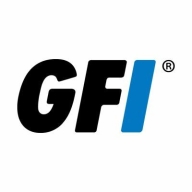


Cisco Meraki MX and KerioControl are both major players in the firewall solutions category. Cisco Meraki MX seems to have an advantage with its cloud-based management and seamless integration capabilities which offer technological superiority in centralized IT management.
Features: Cisco Meraki MX is renowned for its cloud management capabilities, configurable VPNs, and dual WAN connections with automatic failover. Its users also highlight advanced security features and traffic shaping as key benefits. On the other hand, KerioControl is appreciated for its robust firewall rules, intrusion detection systems, and ease of use, complemented by flexible deployment options.
Room for Improvement: Cisco Meraki MX users suggest enhancements in logging, alert systems, configuration options for VPNs, and overall pricing, also noting mixed feedback on its licensing model and support. For KerioControl, criticisms include complex licensing, limited security features, and reporting inconsistencies, with suggestions for improved support services and expanded security features.
Ease of Deployment and Customer Service: Cisco Meraki MX offers both on-premises and cloud deployment options, and its customer support is widely regarded as knowledgeable and responsive. KerioControl is favored for its affordability and ease of setup in on-premises environments, but its customer support could benefit from more expertise and quicker response times.
Pricing and ROI: Cisco Meraki MX is perceived as a more expensive option due to its comprehensive cloud-managed features and strong security functionalities. Yet, users often find the higher cost justified by its time-saving and centralized management benefits, leading to a positive ROI. KerioControl, known for cost-effectiveness for small to mid-sized businesses, faces challenges with its licensing model's complexity, affecting larger deployments, nonetheless providing solid ROI by offering substantial functionality at a lower cost.
Clients are now comfortable and not wasting productive hours on IT support.
The automation part is giving us a cost benefit and speed; we can react faster.
It's a very useful tool to mitigate and protect your enterprise.
They offer very accurate solutions.
The quick resolution of issues with Fortinet FortiGate is due to the support of the company and the fact that the equipment is easy to work with.
I would rate the technical support for Fortinet FortiGate a ten out of ten.
When we raise a ticket with Meraki MX, they instantly become available to support us for configurations or troubleshooting.
I have never needed to contact customer support as the product is easy to use.
They scale up really well from smaller models like the FortiGate 40 and 50 to bigger sites with the FortiGate 100 for more throughput - up to enterprise datacenters.
The variation comes in terms of the interfaces and throughputs, but from a security perspective, you get the same benefit, irrespective of whether you have an entry-level unit or an enterprise.
We determine sizing based on multiple factors: number of users, available links, traffic types, server count, services in use, and whether services will be published.
When you have hundreds of thousands of people it is very difficult to scale in Meraki.
We have Juniper solutions, and I would say the Juniper solutions can scale better, however, this solution is still very scalable.
KerioControl has met some of the network infrastructure needs yet could improve in terms of scalability.
We're experiencing 99.999% availability consistently.
I would rate the stability of Fortinet FortiGate a ten out of ten.
Currently, we are experiencing a general outage of one of the main internet service providers of the Dominican Republic, and we have not been impacted in our operations because with SD-WAN, we have another internet service provider and we are working with the second WAN connection without any disruption.
Investing in a solution that can accommodate such growth would be more cost-effective than repeatedly purchasing new hardware.
The constant daily revisions necessitate meticulous identification of the relevant documents to prevent the use of outdated information that could jeopardize our environment.
While Fortinet claims to offer a comprehensive network solution, it falls short in addressing computer application issues, particularly server security.
It should automatically remediate and find out the issue and then resolve it on its own without interrupting the work of the employees.
Data is the only path, so optimization is essential.
FortiGate is priced lower than Palo Alto.
Last year, I renewed the support for three years, which can sometimes be expensive but depends on the security benefits and how it helps us.
It is about 20% cheaper.
I get it for $25,000, a device that can connect up to 75-100 users, whereas in Meraki MX, it goes to 75,000-80,000 per access point.
In terms of pricing, I would say it is not the cheapest, but it was comparable to the others.
It is neither expensive nor cheap.
The price for the product is rated as ten out of ten.
In terms of security, we have not experienced any security flaws or loopholes, and it has proven to be quite stable.
FortiGate has helped reduce the risk of cyberattacks that might disrupt our client's production.
These features help reduce our downtime, manage the ISPs, and deploy SLAs for all the website traffic.
Meraki MX is among those top solutions in their exceptional approach towards VPN-less, Zero Trust client access to office private networks.
We understand that Cisco solutions are very reliable, and we really like the simple management.
Since cybersecurity is my main concern, this type of miscommunication relating to vulnerability blocking is crucial.
The most valuable features include geo-tagging, which blocks all other IPs except for the specified accounts, and web filtering.



Fortinet FortiGate offers comprehensive network security and firewall protection across multiple locations. It effectively manages data traffic and secures environments with features like VPN, intrusion prevention, and UTM controls.
Organizations rely on Fortinet FortiGate for its robust integration with advanced security policies, ensuring significant protection for enterprises, cloud environments, and educational sectors. It facilitates network segmentation, application-level security, and authentication management, securing communication within and between locations such as branches and data centers. Its efficient SD-WAN and UTM features enable streamlined data management and enhanced threat protection capabilities. Users appreciate its centralized management, facilitating seamless operations across diverse environments.
What are the key features of Fortinet FortiGate?
What benefits should users expect from Fortinet FortiGate?
Fortinet FortiGate is crucial in sectors like education, offering robust networks for secure data flow between campuses and facilitating remote learning. In enterprise environments, it allows efficient management of application traffic and security across multiple branches, while in the cloud, it seamlessly integrates with diverse platforms to enhance security infrastructure.
Cisco Meraki MX offers cloud-managed security with user-friendly setup and efficient management, enhancing VPN and firewall functionalities for businesses.
Cisco Meraki MX is known for its robust cloud-based network management, featuring AutoVPN, SD-WAN, and advanced security. Its centralized control over firewall, traffic shaping, and monitoring ensures excellent connectivity and security. The interface allows easy management by non-technical staff, offering remote access and seamless network performance through real-time alerts and troubleshooting. It supports global connectivity with minimal effort, addressing needs across small to enterprise environments. Despite its strengths, users point out areas needing improvement like load balancing, VPN features, more flexible logging, and session capabilities. Pricing, integration limits, and licensing need enhancement.
What are the key features of Cisco Meraki MX?In industries like retail, finance, and education, Cisco Meraki MX provides enhanced security and connectivity. Retail chains benefit from easy VPN setups for secure multi-site networking, while educational institutions find value in its ability to manage large campuses efficiently. Financial services leverage its robust security features to protect sensitive data, ensuring compliance and trust.
Kerio Control is a popular security product for small and medium-sized businesses. It is a next-generation firewall that provides unified threat management without complexity. Kerio Control provides advanced anti-virus protection and industry-leading web and content application filtering, and has a secure VPN.
With Kerio Control you can:
Kerio Control Features
Some of Kerio Control’s most valuable features include:
High availability, deployment flexibility, deep packet inspection, advanced routing, usage reporting, quick administering, intrusion detection and prevention (IPS), gateway anti-virus, VPN, web and content application filtering, and centralized administration with MyKerio.
Kerio Control Benefits
Reviews from Real Users
Here is some feedback from some of our users who are currently using the solution:
PeerSpot user Brian C., Senior Technology Specialist, VP at Unified Technology Solutions, writes "It is very comprehensive and simple. It has all the active protections. It's updated. We love that you can set how often it is updated so you can work on what is right for you. A large company with a lot of bandwidth can update the virus definitions and security definitions hourly, if they want. A smaller site that's remote, where maybe updating the definitions will eat into the bandwidth, we can schedule those more to go later at night. It's very flexible and works for us in all types of situations. This is great because then we don't have to learn seven different products to be able to work with seven different scenarios."
Andy D., IT Manager at Flare Technologies, praises how easy it is to use and says, "One thing we use quite a lot, as well, is the DHCP Server, because we do a lot of work where all our devices need to have static IP addresses. Rather than going around and configuring every box, we do it all through DHCP reservations. It's easier. We've got a record of it. We can manipulate it if we need to change something or change some hardware. It's all easy. Even guys who are not used to using it can pick it up quite quickly."
We monitor all Firewalls reviews to prevent fraudulent reviews and keep review quality high. We do not post reviews by company employees or direct competitors. We validate each review for authenticity via cross-reference with LinkedIn, and personal follow-up with the reviewer when necessary.